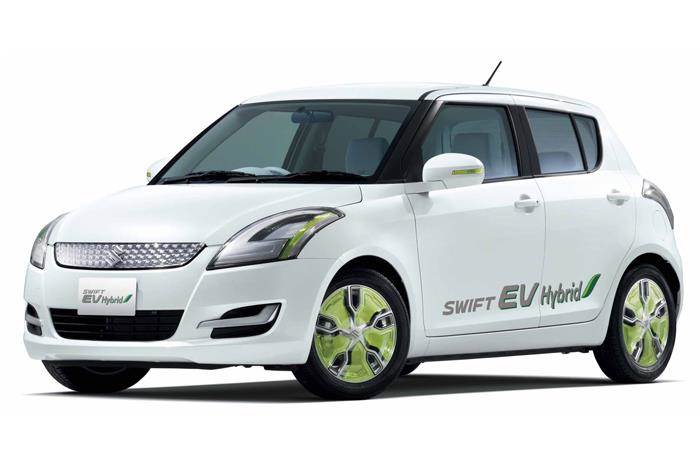The country’s largest carmaker, Maruti Suzuki, plans to ramp up its hybrid game. The company recently hinted at a wider adoption of hybrid technology for its cars in the future, eventually leading to a full hybrid vehicle.
“In order to meet future fuel efficiency norms, you will see a lot of hybridisation coming from Maruti Suzuki,” said C. V. Raman, executive director R&D, Maruti Suzuki India Limited, on the sidelines of the unveiling of Maruti’s new compact crossover, the Ignis, in Mumbai.
It is evaluating the introduction of the 'Smart Hybrid Vehicle by Suzuki' or SHVS technology for more cars in the country, thanks to the encouraging response it has received for vehicles equipped with that technology.
“We will definitely consider mild hybrid for further models and you will see more models coming with that technology. We look at this as a stepping stone for future hybrid technology because this step will help people to understand a full hybrid,” said Raman. In fact, it is studying the possibility of offering the mild-hybrid tech on the new generation Swift, slated to be introduced in India in mid-2017.
The company, which currently offers the mild-hybrid version of the Ciaz and the Ertiga diesel, has sold over 1,00,000 units of such vehicles so far.
Interestingly, Maruti Suzuki has outlined the enhancement of capability in the field of electric vehicle/ hybrid electric vehicle as one of the points in the future plan of action in its Annual Report for 2015-16, released earlier this year.
However, Raman expressed concerns over the acquaintance of the technology amid the car buyers. He said more work needs to be done to educate people over the functioning of the technology in order to boost the acceptance and the benefits of the SHVS system.
“As far as mild hybrid is concerned, we believe that we need to start the education process for our customers to see how it works. Most of the time we have seen drivers not actually understanding that regeneration will not happen if you have your foot on the clutch pedal. Similarly, when the engine shuts down, people feel there is something abnormal. We need to propagate that the system is helpful,” he said.
Raman said the carmaker for now has no plans of introducing the Ignis, which is launching in January 2017, with the mild-hybrid technology. While he did not specify the reason, it could be the current duty structure which does not provide for a lower tax rate for small cars with hybrid technology. At present, small cars and hybrids, both attract a similar excise duty of 12.5 percent in India.
However, the Society of Indian Automobile Manufacturers (SIAM) has suggested that for electric, hybrid and other alternative fuel vehicles, the rate should be at least 8 percent less than the standard rate under the upcoming GST. If implemented, it could encourage Maruti and other auto companies to consider extending their hybrid technology to smaller cars.



Comments
Member Login
Personal Details
No comments yet. Be the first to comment.